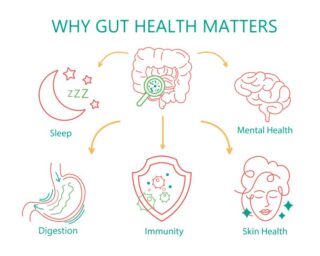All About the Flu and How to Prevent It

How long does the flu last?
The flu is a highly contagious, respiratory virus that is uncomfortable, and is usually fought by your immune system. In a healthy individual symptoms usually develop within one to four days after being exposed to the virus can last up to seven days. If you have previously received the influenza vaccine your symptoms might resolve sooner or be less severe. Individuals with weakened immune systems are at an increased risk for developing complications from the flu such as pneumonia, and can be fatal if left untreated. It is important to notify your doctor right away if you are experiencing flu symptoms so that you can be promptly evaluated.
Getting a yearly flu vaccine is very important especially given the Covid-19 pandemic. Covid-19 symptoms are similar to that of the flu. The bottom line is, get vaccinated!!
How do you cure the flu quickly?
Although the flu virus is self limiting, it is important to know when to reach out to your medical provider for further treatment. If you contract the flu you should drink plenty of fluids and get plenty of rest. Pain relievers such as acetaminophen, ibuprofen, and naproxen can be taken to lower your fever and relieve body aches. If you have a weakened immune system or are at high risk of complication, your doctor can prescribe an antiviral medication to treat the flu such as Tamiflu. Antiviral medications such as Tamiflu are most effective if started within 48hr from the start of your symptoms.
**On the telehealth platform we are able to prescribe antiviral therapy, again you need to reach out to your medical provider quickly upon having symptoms to get this prescription in an attempt to shorten the course and severity of your flu.
What are the stages of the flu?
The flu can affect individuals in various ways and not everyone who contracts the virus will experience the same symptoms. Typically before any flu symptoms appear an individual is contagious. After day 1, flu symptoms may appear abruptly and consist of headache, fevers, chills, body aches and fatigue. On day 2 symptoms might progress to cough, congestion, and continuing fevers. You may even feel too fatigued to get out of bed. It is recommended that you stay away from others while you are sick to prevent the spread of your illness. On day 3-4 your symptoms may be at their worst while they peak. Besides having sore throat, body aches, cough and congestion you may start to experience gastrointestinal symptoms as well. By day 5-6 you may start to feel better as your fever and congestion start to subside. It is important that you should stay home, rest, and continue to drink plenty of fluids during this time. Your cough may linger after other symptoms have subsided. By day 6 or 7 you should likely be feeling better on the road to recovery. If your symptoms have not subsided or you develop additional symptoms during this time it is important to reach out to your doctor as you may have developed a secondary infection.
Each case of the flu is very different and the severity of your symptoms may vary depending on your overall health and if you have previously received the flu shot. Remember that antiviral medications are most effective after 48hrs of symptoms onset, therefore call your doctor right away if you feel you may have contracted the flu virus.
The take-home message is GET YOUR ANNUAL FLU SHOT!!!
How do I prevent the flu?
Although there is no way to guarantee you will not contract the influenza virus, there are several preventative measures you can take to reduce your risk
-As mentioned above: Obtain an annual flu vaccine at your medical providers office or local pharmacy
-Wash your hands with soap and water frequently, avoiding touching your face, eyes, nose and mouth.
-Quit smoking: Individuals who smoke are at a higher risk of getting the flu than nonsmokers.








